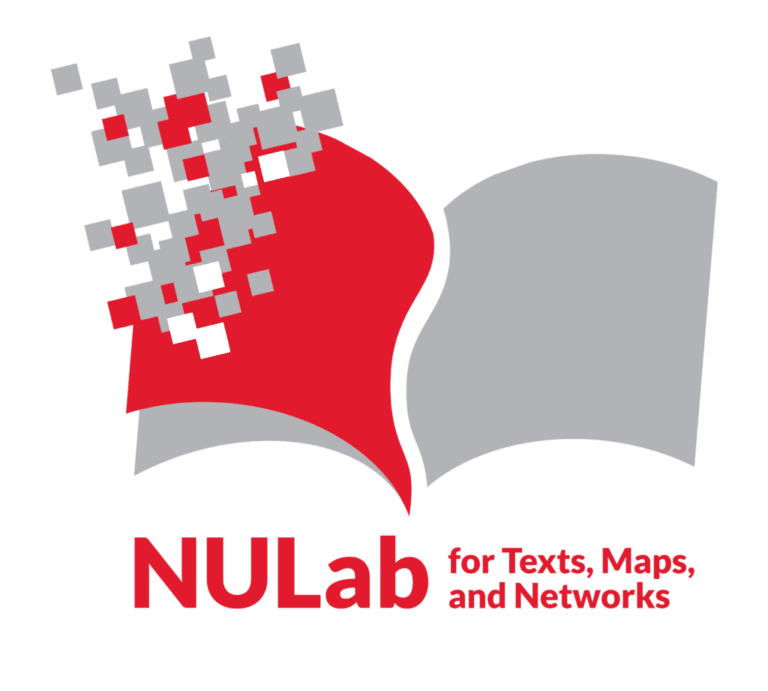April 19, 2024
9:30am–3:30pm Boston / 6:30am–12:30pm Auckland / 2:30pm–8:30pm London
On April 19, NULab will host its seventh annual spring conference, “Digital Technologies for Community Collaborations,” which will showcase the work of faculty, students, and research partners.
The keynote address will be delivered by Karilyn CrockettAssistant Professor of Urban History, Public Policy & Planning at the Massachusetts Institute of Technology.
This event is free and open to the public, but registration is required. please RSVP here. Zoom information will be emailed upon registration.
The conference will be hybrid. We will meet in person at Alumni Center (716 Columbus Ave., 6th floor) on the Northeastern University Boston campus, and virtually on Zoom. Everyone is welcome to join! We can accept RSVPs for the virtual conference up until the day of the event, but if you will be joining us for lunch in person, please RSVP until April 8.
Please note: We are committed to reducing food waste for this event. If you request to participate in person and are unable to attend please let us know by April 12th so we can update the lunch order.
Program
The times below are in Eastern.
- 9:30 am: Light breakfast
- 9:45 am: Welcome and opening
- Welcome, land recognition, grounding exercise: Moira Zellner, Public Policy and Urban Affairs, College of Social Sciences and Humanities. NULab Co-Director
- Conference details: Sarah Connell, Deputy Director NULab
- Introductory comments: Kellee S. TsaiDean and Distinguished Professor, College of Social Sciences and Humanities
- 10-11:30 am: Civic Tech: Computing for Communities
- Mediator: Carlos Sandoval OlascoagaCollege of Arts, Media and Design
- Sahar Abi-HassanPolitical Science, Mills College at Northeastern University
- Alex KleinNortheastern University of London
- Nabeel GillaniCollege of Arts, Media and Design (Art + Design) and the D'Amore-McKim School of Business (Marketing)
- Christopher Le DantecKhoury College of Computer Sciences and the College of Arts, Media and Design
- Moira Zellner, Public Policy and Urban Affairs, College of Social Sciences and Humanities. NULab Co-Director
- 11:30-12:30: Lunch
- 12:30 – 13:45: Keynote address by Karilyn CrockettAssistant Professor of Urban History, Public Policy & Planning at MIT: “Hacking the Archive: The Quest for More Just Urban Futures<1969-2069>>”
- 2–3:25 pm: Digital platforms that reflect communities
- Mediator: KJ Rawson, English, College of Social Sciences and Humanities. NULab Co-Director
- Lisa ArellanoWomen's Studies of Gender and Sexuality, Mills College at Northeastern University
- Deepa Desaiof Public Policy and Civil Affairs, and Halima Haruna, History? College of Social Sciences and Humanities
- Mario HernandezSociology, Mills College at Northeastern University and Josh LownCity to City: Policy Equity for All project
- Joy Zanghi, Civil Rights and Restorative Justice Project
- 15:25: Closure
- KJ Rawson, English, College of Social Sciences and Humanities. NULab Co-Director
- Dan Cohen, Dean of the Library. Vice President of Information Cooperation. Professor of History
To allow space for informal discussions and community building, this conference will not be recorded. We will include automated live captions for the Zoom call and have requested an ASL interpreter.
Summary of Key Note
This talk explores a Boston-based project that gamifies collaborative memory-driven social inquiry and local knowledge sharing to ground intergenerational future urban design. Hacking the Archive (HTA) is a coalition of two dozen political, faith, and archival institutions promoting a new approach to collecting and disseminating data for populations underrepresented in the archive but overrepresented in on-the-ground battles for urban space. This talk focuses on HTA's current work to examine past and present grassroots strategies to address economic justice.
Keynote Speaker CV
Karilyn Crockett earned a PhD from the American Studies program at Yale University, a Master of Science in Geography from the London School of Economics, and a Master of Arts and Religion from Yale Divinity School. Her research focuses on large-scale land-use change in twentieth-century American cities and examines the social and geographic impacts of structural poverty. Her dissertation, “People Before Highways: Reconsidering Routes to and from the Boston Anti-Highway Movement,” explores a 1960s-era grassroots movement to stop the urban expansion of the interstate highway system and forms the basis of her book of the same name.



